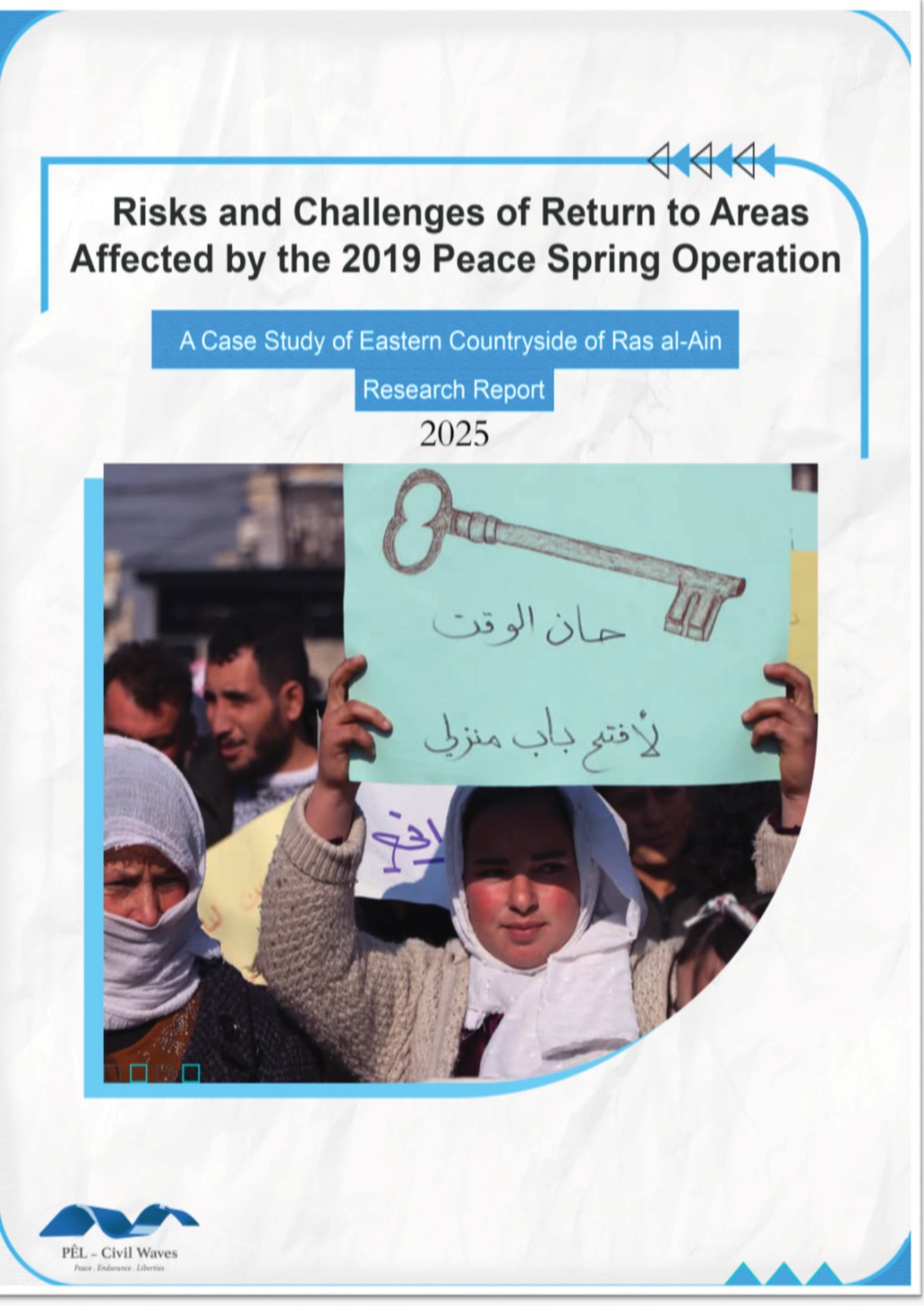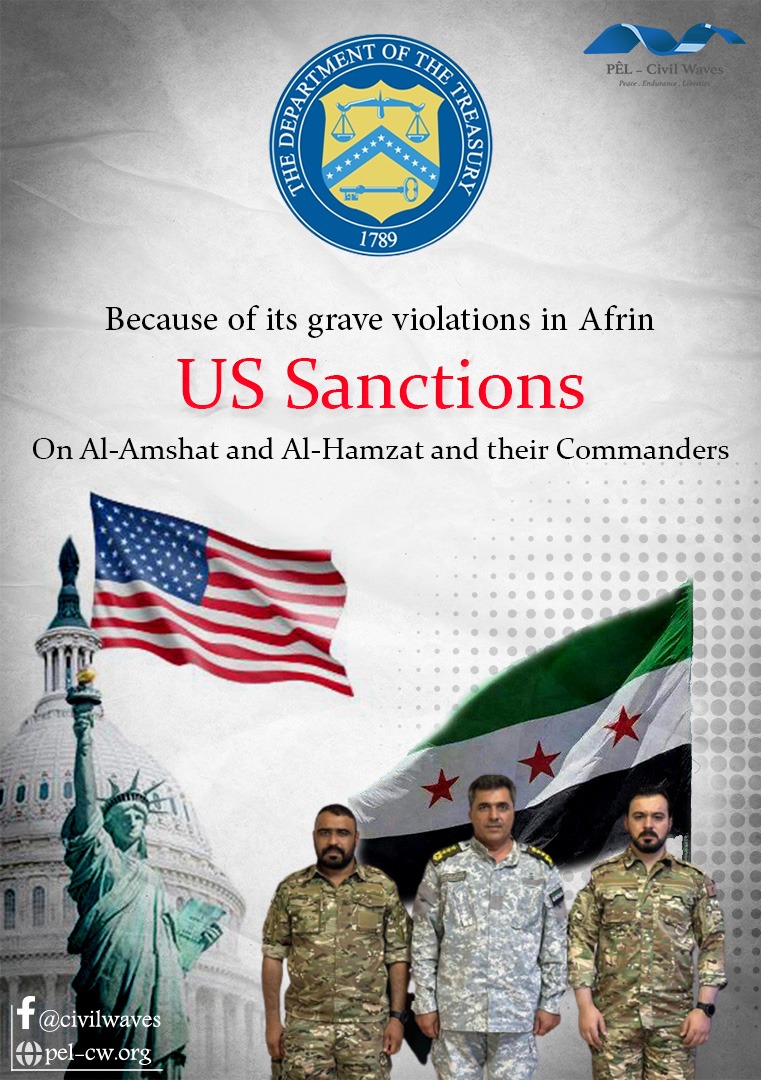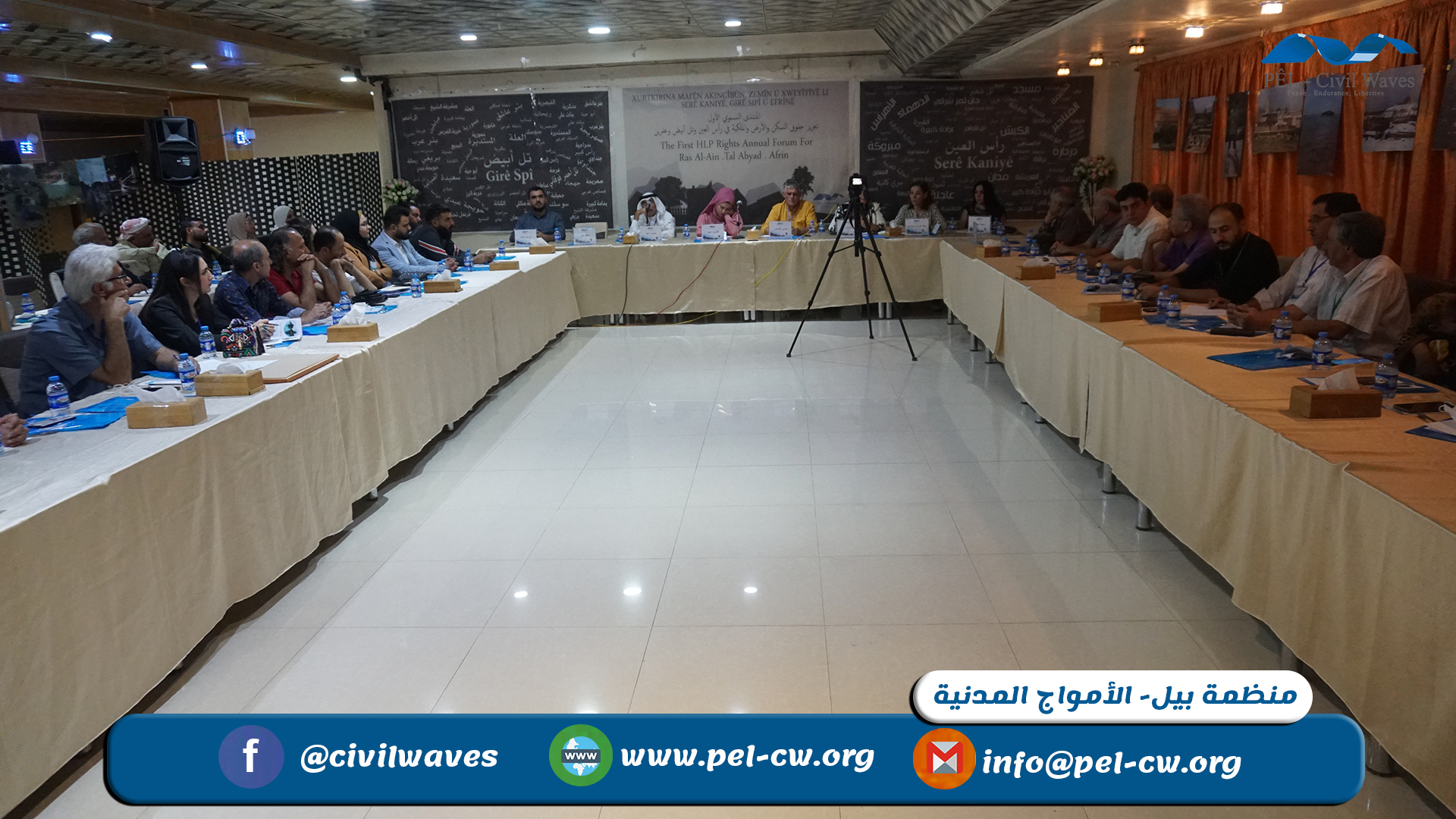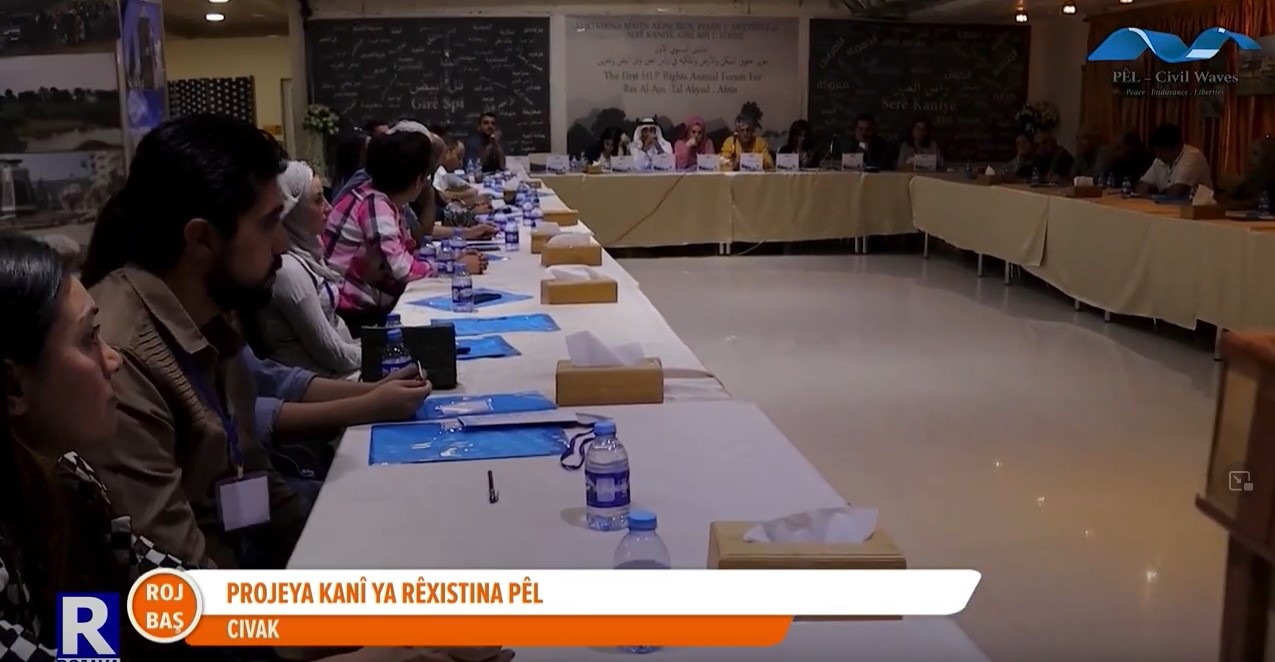On October 9, 2019, Turkish President Recep Tayyip Erdoğan announced the launch of the military operation called “Peace Spring,” which targeted the areas of Ras al-Ain / Serekaniye and Tal Abyad in northeastern Syria.
The operation was carried out by the Turkish army and Syrian armed factions supported by it, known as the “Syrian National Army.” It ended with full control over the aforementioned areas.
The operation was accompanied by a series of human rights violations, primarily affecting housing, land and property rights, arbitrary arrests, torture, and cruel and inhuman treatment, which continue to this day.
These widespread and systematic violations, committed by Turkish forces and allied Syrian factions, have created major challenges and fears that prevent original residents from returning to their homes and reclaiming their rights and livelihoods.
This report focuses on violations committed against those who attempted to return to their villages, including cases of killings, arrests, extortion, and ransom demands, in addition to the risks of landmines and booby-trapped homes and villages, which resulted in the death and injury of many relatives of the interviewed witnesses.
The research is based on the eastern countryside of Ras al-Ain / Serekaniye as a case study, with 30 out of 43 collected testimonies originating from this area. The targeted region extends from the town of Tel Tamer in the south to Kassra village in the northwest, near the Turkish border (about 40 km), from Tel Tamer to Khirbet al-Souda in the west (20 km), from Khirbet al-Souda to Mreikiz (38 km), and from Mreikiz to Kassra (17 km), covering around 52 villages in total
To read more, please click on the following file.
Risks and Challenges of Return to Areas Affected by the 2019 Peace Spring Operation



